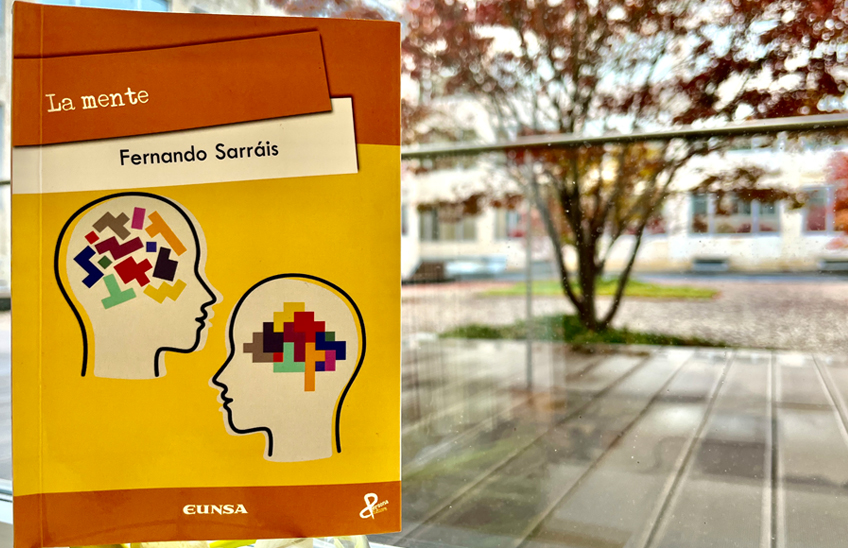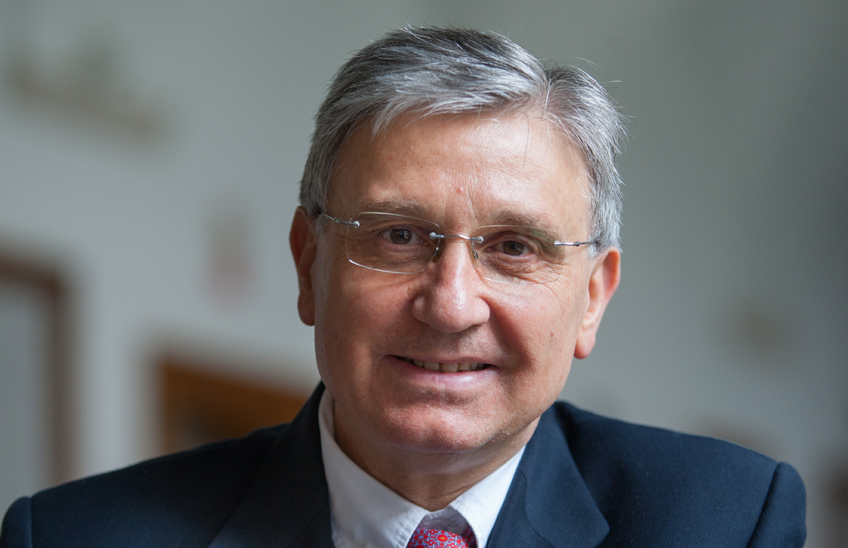Five tips to help your children have a healthy mind
University professor Fernando Sarráis suggests that parents should encourage their children's self-esteem and love for themselves; help them overcome their fears and try to convince them that what is important is not success but the effort to achieve it.

04 | 08 | 2023
To help children to have a healthy mind, parents should avoid overprotecting them, help them overcome their fear of suffering, try to convince them that what is important is not success but the struggle to achieve it; and teach them to love themselves as they are, showing them their positive qualities over and over again, not only for what they do or achieve. So advises Dr. Fernando Sarráis, psychiatrist, psychologist and professor at the University of Navarra, in his latest book, "The Mind".. Dr. Sarráis addresses the psychological development in the different stages of life: childhood, adolescence, adulthood and old age; and also defines the concept of personality and the types of normal and pathological characters.
"A child's self-esteem depends on evaluation and the love he or she receives from others, especially parents, siblings, relatives, friends and teachers," the author describes. Professor Sarráis encourages the development in young people of fortitude, a quality of willpower, through small daily efforts, and tolerance to frustration, which involves enduring suffering well, to prevent them from developing an excessive fear of suffering and the possibility of developing phobias. Tolerance to frustration is directly related to resilience, which is the ability to recover a normal mental state after an event that causes suffering," he says.

Addiction prevention strategies
The publication seeks to show in a simple and brief way the functioning of the human mind, both healthy and sick. Because of the current relevance of addictions, Dr. Sarráis deals in depth with their causes and treatments, and how they affect the people who suffer from them and the people around them. He also provides several strategies to prevent them. To help someone who has fallen into addiction, "the most important thing is prevention, because treatment is very difficult, complicated and uncertain. This prevention has to start with an exaltation of freedom staff and inner freedom, which is what is lost when there is an addiction," he says.
"With adolescents, budding adults, you have to talk little and act a lot," he writes and advocates gaining their trust and making them feel that educators support them. Professor Sarráis also talks about not dramatizing the defects and mistakes of young people; teach them to be sincere and, why not, allow them to have a bad day. "It is important to instill in them a positive vision of what they are and how they are; make them see that they are not annoying because they are in the 'turkey age' and try to put themselves in their place".
Another of the keys pointed out by Dr. Sarráis is to let them discover for themselves what they want and what they are looking for; avoid setting them against their friends, "because they need them," he says; and teach them to obey and respect authority. "This requires that they be required to discipline, fulfill orders, tasks, schedules..., etc., because 'if you want something, it costs you something,'" he stresses.
"There are addictions that are very serious because they quickly deteriorate the physical health of the addict and rob him of the positive qualities of his personality," he continues. In his opinion, the most serious are: the use of cocaine (and other stimulants), heroin (and derivatives, including fentanyl) and alcohol abuse, and then addiction to sexual pleasure.
Sarráis also explains that the idealization of sexual pleasure as the path to happiness in today's society is "the greatest deception of our time.""Consumption of pleasure leads to repetition and addiction quickly; it makes people selfish, because pleasure is to feel good oneself, not to make others happy; and it prioritizes feeling good, not being happy," he concludes.




